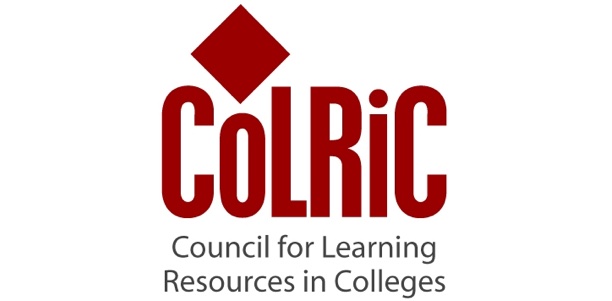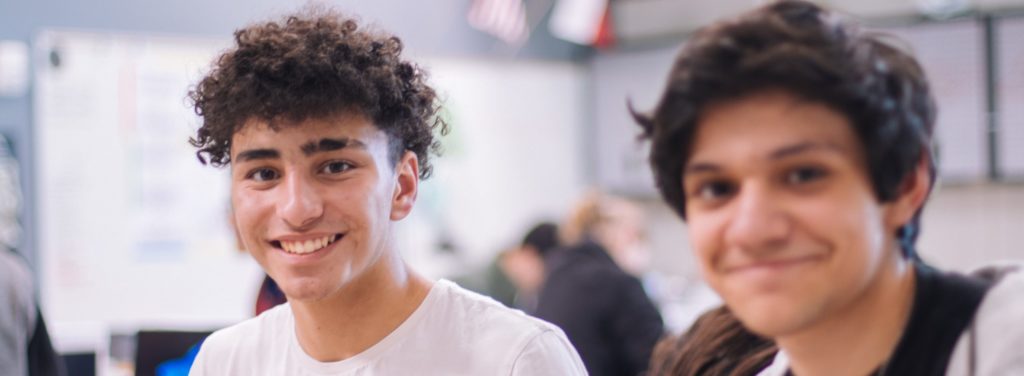The process of preparing an application for a CoLRiC award can be an uplifting and positive experience.
It was great to reflect on what we’ve achieved as a team. By necessity we spend our working days focused on the immediate moment. There was so much positive feedback on the work of the learning resources centre. During difficult times, when staff feel quite vulnerable, this has given us a real morale boost.
CoLRiC’s Innovative Practice Award (CIPA) is given to a service or team that can demonstrate the value and impact of its service provision, a project or an initiative.
Thank you to IS Oxford for sponsoring the Innovative Practice Award.

Previous winners
2023
The winner of the 2023 Innovative Practice Award was Bradford College Library for its ‘The Art of Problem Solving’ initiative, designed to develop skills to demystify maths and build resilience.
Bradford College Library impressed the judging panel for several reasons:
- Proactive engagement with students and the College community beyond library walls
- Significant potential for sustainability with plans already afoot to develop the initiative over 2024
- Evidence of value and impact through feedback and supportive statements
- A potential numeracy/mathematics skills blueprint for other Colleges to follow.
2022
The winner of the Innovative Practice Award for 2022 was the Learning Resources Service at Bridgwater & Taunton College/University Centre Somerset for its ‘Embedded Librarian or Taking the Library to the Classroom’ initiative.
The Learning Resources Service at Bridgwater & Taunton College/University Centre Somerset impressed the judging panel for several reasons:
- The collaboration and dialogue with teaching staff to create an engaging bespoke service for students
- The effective utilisation of digital curriculum platforms to contextualise learning resources within the wider learning environment, embracing everything from print and electronic sources of information, information retrieval and research skills to equality, diversity, health and wellbeing awareness
- The use of universally understood social media communication techniques to engage with the student community
- The introduction of complementary ‘pop in’ classroom visits at specific and relevant times of the academic year to offer guidance, hints and tips on common queries like referencing, most notably ‘speed databasing’
- Sensitivity to the needs of a diverse student community
- Overwhelmingly positive feedback that evidences a major impact on student learning, including the accuracy of bibliographies, improved writing skills, the wider exploration of information resources and overall academic confidence.
The judges also highly commended the Chichester College Group Library Service initiative ‘Creating an Actively Anti-Racist Library Service’.
- Its commitment to creating an anti-racist library service that will help ‘change lives through learning’ and address the underperformance of non-white students in FE
- Significant research, discussion and collaboration around racial literacy and ‘decolonising the curriculum’
- Motivating the teaching community to reflect on curriculum content
- Empowering the student community to engage in conversations on an emotive, sensitive topic
- Positive academic feedback that evidences the impact decolonisation could have on the learning experience.
2021
The winner of the 2021 CoLRiC Innovative Practice Award (CIPA) was the Trafford College Group Library Service for ‘LibraryLive – integrating the Library Service into curriculum delivery’.
As Microsoft Teams became a key method of delivering teaching and learning during lockdowns, the team at Trafford College Group integrated library resources and support into the new learning environment. The project is a wonderful example of designing and delivering a rapid response to changing circumstances
The following colleges were commended:
- Bolton College for the innovative development of their Online Art Gallery
- Bradford College for the high level of inclusion associated with their project as the online reading groups covered all curriculum levels
- Buxton and Leek College for the interactive nature of their inductions, which led to a recognised increase in their students’ level of Information Literacy
2020
In 2020 we announced the call for BPA nominations shortly before we entered the Covid-19 lockdown. The circumstances we all found ourselves working in changed dramatically. What would have been considered extraordinary just a few months before became, for many colleges, the ‘new norm.’ For our members, their priorities shifted to finding innovative ways to provide day-to-day support for students and staff. Many were busy creating and rolling out new types of services and support. Our members were making significant efforts in the face of difficult circumstances. These unprecedented circumstances impacted the quantity and type of nominations we received for our BPA.
With these considerations in mind, the Executive Committee took the decision not to award a Best Practice Award this year. Instead we celebrated the lessons shared by Highly Commending the following colleges:
• Chichester
• Isle of Wight
• South Gloucestershire and Stroud
• St Francis Xavier
2019
In 2019 we awarded two prizes.
Chichester College Group Libraries demonstrated excellent practice in marketing and social media. The team successfully utilised Twitter as a tool for internal advocacy and service growth; showcasing their services and embedding the library in the teaching and learning community. Jo McKenna-Aspell, Library Assistant at the Chichester College Group said ‘The aim was to create an engaging Twitter presence that would re-energise service delivery and improve both the number and quality of interactions and engagement with students and staff. Twitter has been instrumental in bringing the wider community into the libraries and cementing their place at the heart of the College. We are so grateful that we have won this prestigious Best Practice Award in recognition of what we have achieved.’
The Library at Northampton College demonstrated excellent practice in digital literacy. The DigiCap scheme helps to improve and develop IT skills and confidence in using new technology across all levels, from very basic to advanced.
Kate Brown, Learning Facilitator Coordinator at the College was delighted with the outcome. ‘Winning the Best Practice Award means so much to everybody on the team. We’ve worked hard to deliver DigiCap to as many students as possible; to ensure that they are prepared for the technological challenges they will face in employment. DigiCap has raised the standard of digital literacy in our students and they are more likely to succeed in their chosen careers.’
2018
In 2018 there were two prize winners.
The Library at Northampton College won for demonstrating excellent practice in engaging students in numeracy skills. ‘Maths Magician’ is an original and innovative 20-week numeracy scheme developed by library assistants at the College in support of the Government’s agenda to improve literacy and numeracy in the UK. The scheme was designed to embed numeracy skills by inviting students to continually practise their maths skills through completing a weekly maths puzzle.
Northampton College’s Librarian Amy Harnaman said: ‘Maths Magician has raised awareness of the role of the Library as an indispensable service in the promotion of learning. Above all it breaks down the barrier of the general fear of maths in society and makes maths magical, not menacing.’
The Learning Resource Centres, part of Information and Learning Services at Exeter College won for demonstrating excellent practice in digital implementation & innovation. They responded to the increasing importance of student digital literacy skills and their parity with traditional information literacy skills by evolving the traditional subject librarian role into a new Information and Digital Practitioner role. The IDPs designed and delivered new courses on topics including fake news, the opportunities and pitfalls of social media and professional online identity.
Tammy East, LRC Customer Experience Manager said: ‘Winning the Best Practice Award in Digital Implementation and Innovation is a wonderful recognition of more than a year’s hard work developing a contemporary digital literacy provision and reaching more students than we ever thought possible.’



